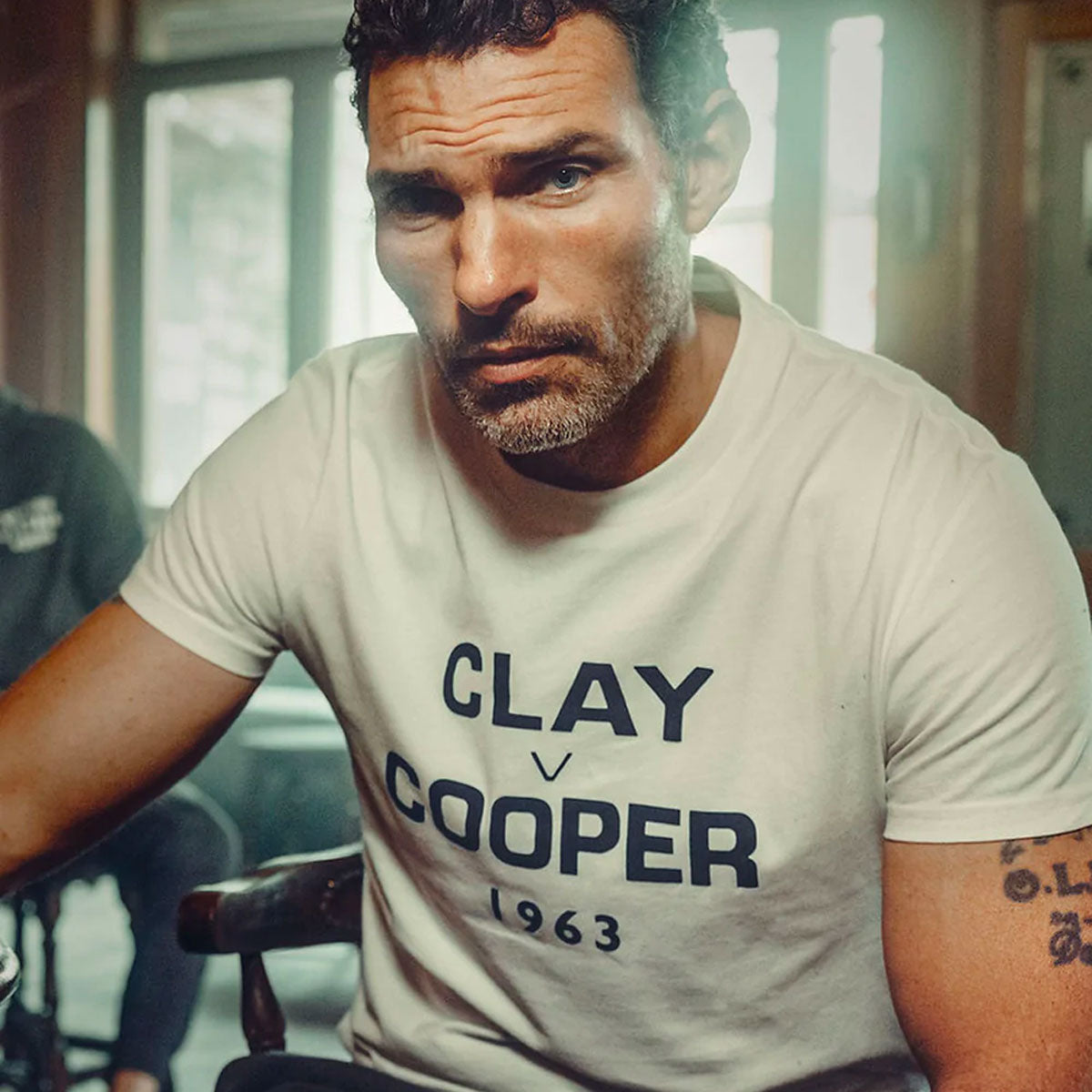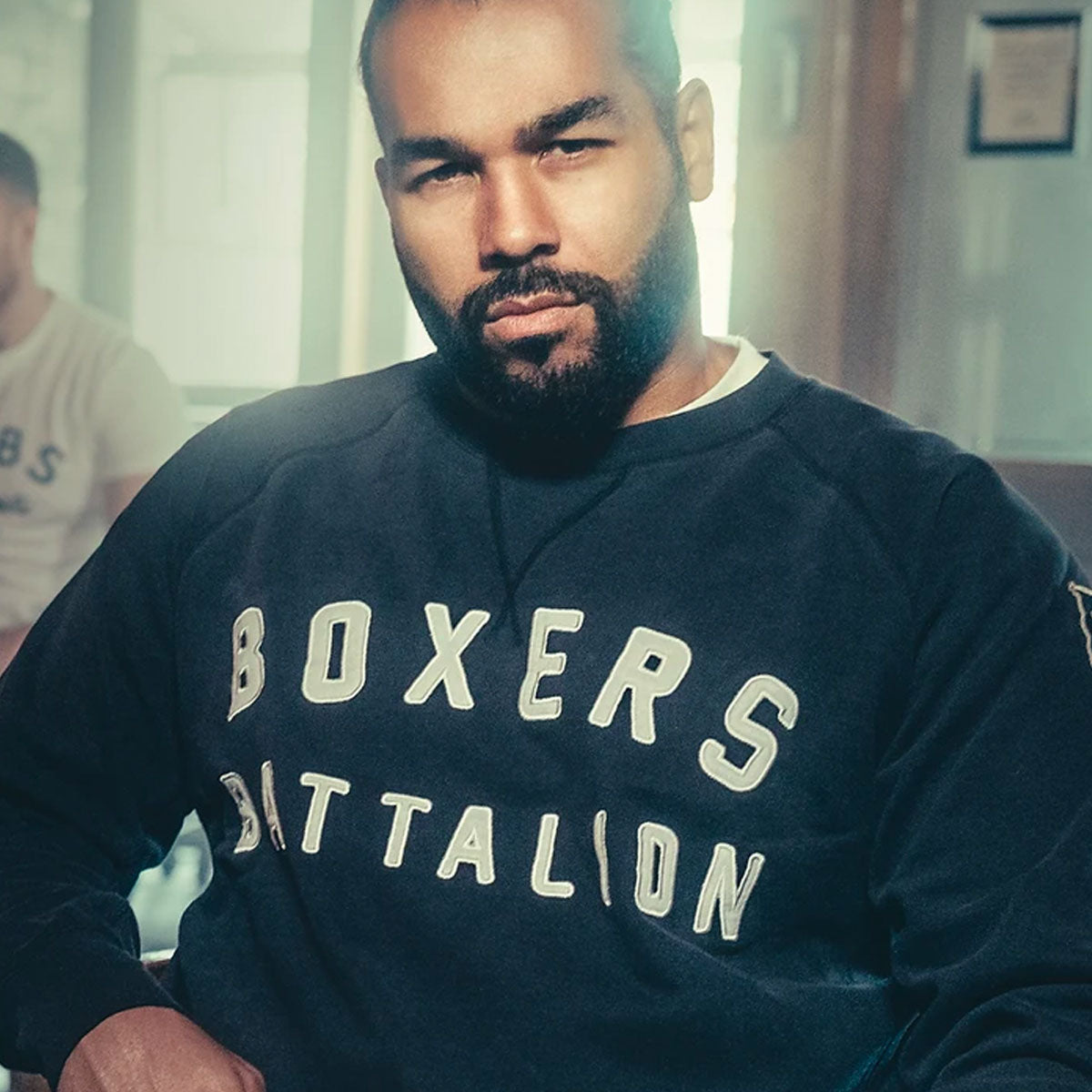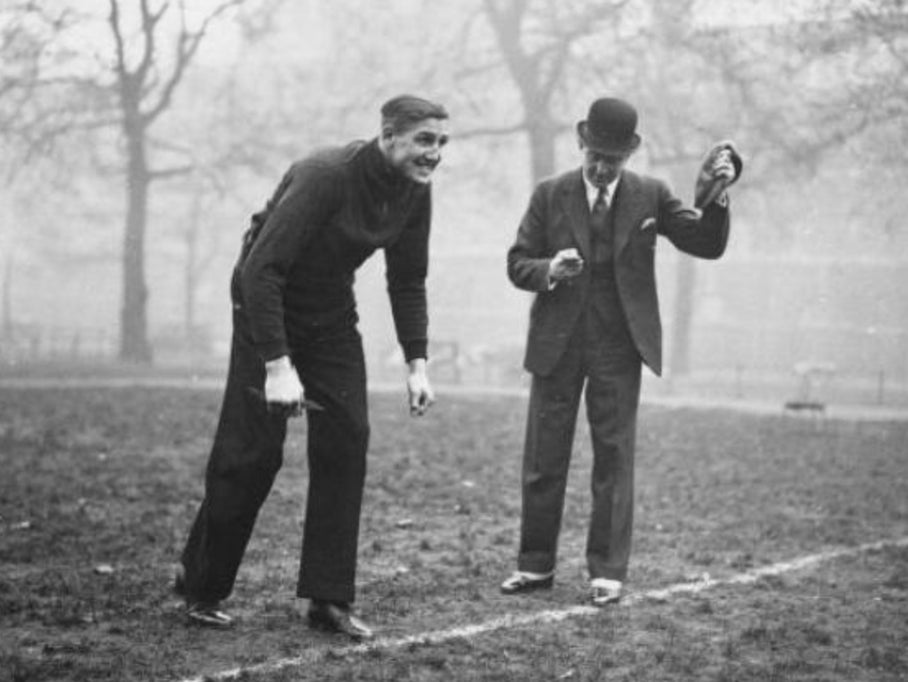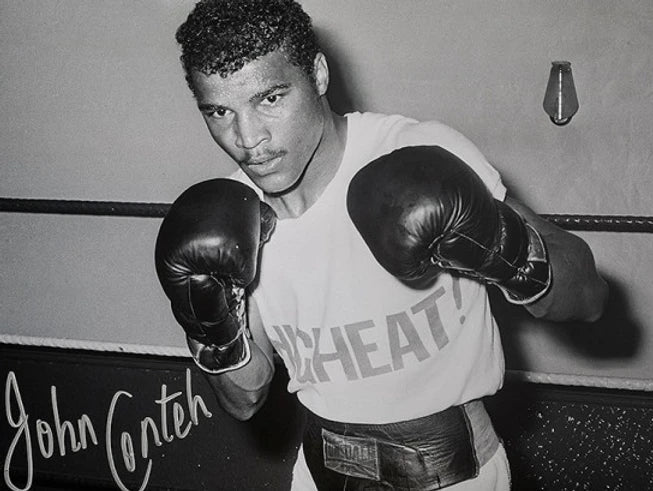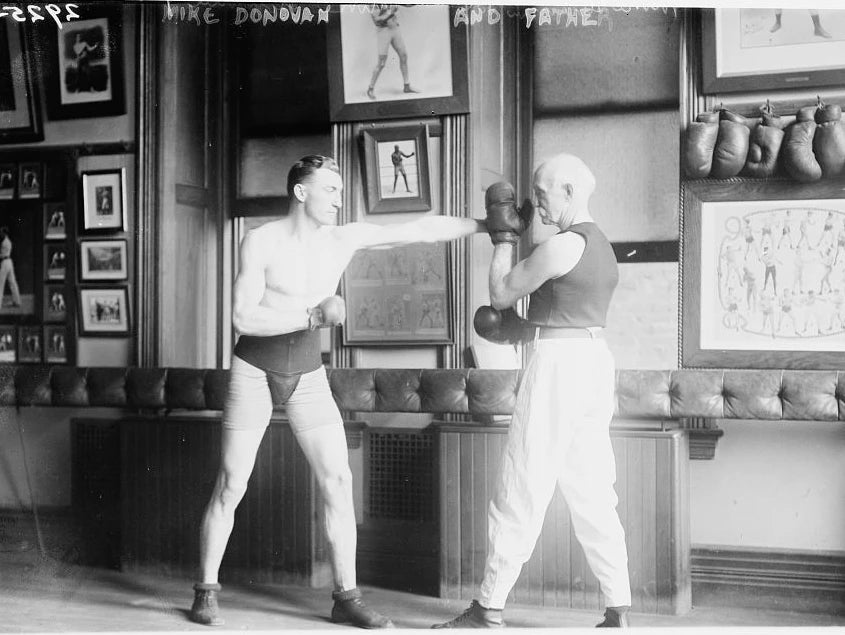Contributed by sportswriter Paul Zanon
On 2 September 1911, John Charles Peterson entered this world. He would later become known on the professional boxing circuit as Jack.
Despite having Danish roots on his father’s side, Jack, a proud Welshman, was born and raised in Cardiff. Surrounded by local boxing heritage, it didn’t take long for the young Peterson to jump into the square ring to test his mettle as a boxer. By the age of 18 he reached the finals of the Welsh Amateur Boxing Association (ABA) championships, campaigning at both middleweight and light heavyweight, but unfortunately not walking away with any silverware.
But glory wouldn’t elude him as the following year Peterson was victorious as both a light heavyweight and heavyweight at the Welsh ABAs. Not content with his achievements, he also claimed the title of British light heavyweight ABA champion.
Growing into his 6ft 1 ½ inch frame, Peterson made his professional debut as a heavyweight on 21 September 1931, knocking out Bill Partridge in the fourth round at the Holborn Stadium, London. Under the guidance of his father Thomas, also his trainer, in under four months the Cardiff favourite racked up a further 13 victories, earning him a shot at the Welsh heavyweight title, against Dick Power. Intent on making an impression on the big stage in front of 8,000 attendees, on 3 February 1932 Peterson knocked out his opponent in a mere 21 seconds at Greyfriars Hall, Cardiff.
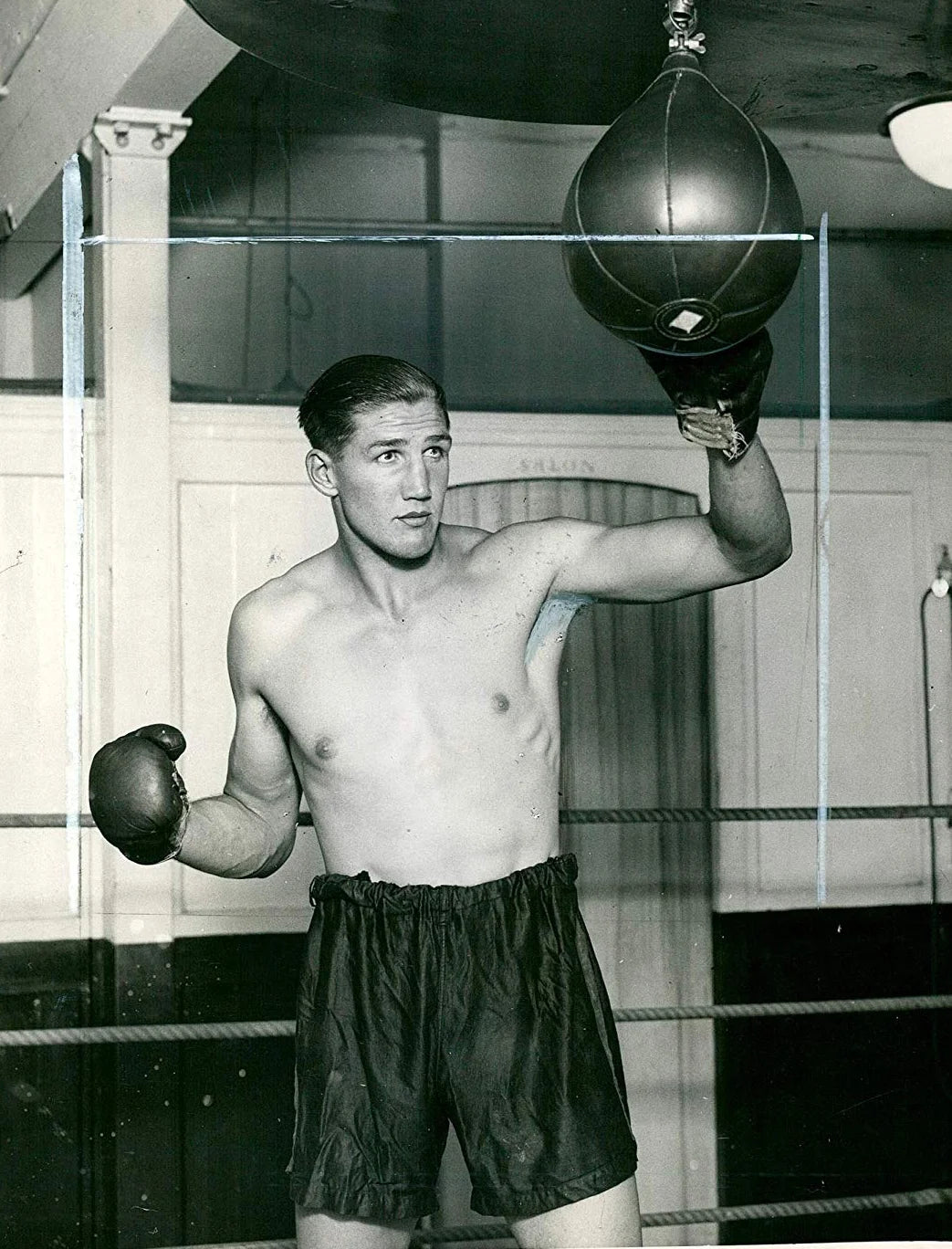
Clocking up three wins in quick succession, Peterson dropped weight to challenge ring veteran Harry Crossley (43-11-8 at the time), for the British light heavyweight title. Despite Crossley holding the strap three years prior, Peterson was able to control the fight, taking a points victory on 23 May 1932 at the same venue in Holborn where he had made his debut.
Peterson relinquished the title without making any defences, and only seven weeks later, on 12 July at Wimbledon Stadium, he returned as a heavyweight, challenging the British champion Reggie Meen. Back at his natural fighting weight, Peterson demolished his foe in two rounds, making him a two weight champion in 44 days and also Wales’s first ever British heavyweight champion.
Over the next 12 months, Peterson fought six times, successfully defending his British crown twice, the latter contest against Jack Doyle, in front of a rumoured crowd of 90,000 at White City Stadium. After repeatedly striking Peterson south of his waistline, Doyle was disqualified in the second session.

On 30 November 1933 at the Royal Albert Hall, Peterson was outpointed over 15 rounds by the vastly talented Len Harvey (115-10-9 at the time). Interestingly, both fighters weighed in below 175lbs. It’s also worth noting that Harvey was already a former two weight British and Commonwealth champion and would go on to win world honours five years later.

Peterson would lock horns with Harvey a further two times, but this time with more favourable outcomes. After their first encounter, the Welshman notched up four more victories, before attempting to take back his British crown on 4 June 1934 in front of 70,000 fans at White City Stadium. With the Commonwealth heavyweight title also on the line, Peterson put on a crunching performance, stopping Harvey in the twelfth of a scheduled 15 round contest.

Three months later, on 10 September 1934, Peterson put his Commonwealth title on the line against Larry Gains (91-14-4). The tough Canadian had previously held the title, losing it to Len Harvey earlier in the year. Having beaten the future heavyweight champion, man mountain Primo Carnera less than two years prior, Gains was a genuine test.
With 70,000 people backing the Welshman at White City Stadium, Peterson stopped Gains in the thirteenth round, propelling him onto the European scene. After defending his British and Commonwealth titles against George Cook, on 4 February 1935, Peterson took on German Walter Neusel at the Wembley Arena. ‘Der Blonde Tiger,’ as he was referred to in his hometown of Wanne-Eickel, lasted nine rounds with Max Schmeling six months earlier.
Neusel, naturally the bigger man, outweighed Peterson by around 20lbs. Despite being a very competitive contest which had those in attendance standing throughout, Peterson had to retire in the eleventh round. The call for a rematch was immediate and the date was promptly set for 25 June at Wembley Stadium.

The contest had the crowd engaged from the opening bell, screaming and shouting for Peterson to get revenge. In the tenth round, Peterson unleashed a flurry of punches on the German, but in doing so emptied his tank. Neusel responded with his own barrage which almost had Peterson out at the end of the round. Quoting the New York Times, "Neusel's eye was closed and he appeared almost as tired as Peterson when the latter refused to continue." The truth is, Peterson’s father pulled him out of the contest, not wanting to see his son receive any further punishment.
Over the next 14 months, Peterson defended his British and Commonwealth titles against Len Harvey and Jock McAvoy, then lost the straps against South African born Ben Foord on 17 August 1936. Foord died in a freak accident six years later at the age of 29, while attempting to spin a pistol like an old fashioned gun slinger. The gun unfortunately went off in his face.
Six months after the Foord contest, on 1 February 1937 Peterson had his last fight. The third instalment of the Neusel trilogy, finished in similar fashion to the previous two, with Peterson retired in the tenth round.
At only 25 years of age, Cardiff’s favourite fighting son hung up the gloves for good, with a respectable 35-5 record. Two years later, World War II broke out and Peterson did his bit for king and country, initially joining the territorial army and soon achieving the rank of honorary captain, before serving as a physical training instructor in the RAF. Post war, he still kept a toe in the boxing world, acting as an official for the British Boxing Board of Control and then in 1986 assuming the role of president. The same year he was awarded the OBE for his services to sport and also became vice chairman of the sports council for Wales.
Jack Peterson passed away on 1 November 1990 in Bridgend, Wales at the age of 79, as a result of lung cancer. His son David has done an excellent job of keeping the Peterson name in the headlines, but through his own unique talent as a sculptor based in Carmarthenshire. His signature pieces are metal dragons, which perhaps poetically personify his father’s fighting spirit.
Paul Zanon, has had nine books published, with almost all of them reaching the No1 Bestselling spot in their respective categories on Amazon. He has co-hosted boxing shows on Talk Sport, been a pundit on London Live, Boxnation and has contributed to a number of boxing publications, including, Boxing Monthly, The Ring, Daily Sport, Boxing News, Boxing Social, amongst other publications.
On 2 September 1911, John Charles Peterson entered this world. He would later become known on the professional boxing circuit as Jack.
Despite having Danish roots on his father’s side, Jack, a proud Welshman, was born and raised in Cardiff. Surrounded by local boxing heritage, it didn’t take long for the young Peterson to jump into the square ring to test his mettle as a boxer. By the age of 18 he reached the finals of the Welsh Amateur Boxing Association (ABA) championships, campaigning at both middleweight and light heavyweight, but unfortunately not walking away with any silverware.
But glory wouldn’t elude him as the following year Peterson was victorious as both a light heavyweight and heavyweight at the Welsh ABAs. Not content with his achievements, he also claimed the title of British light heavyweight ABA champion.
Growing into his 6ft 1 ½ inch frame, Peterson made his professional debut as a heavyweight on 21 September 1931, knocking out Bill Partridge in the fourth round at the Holborn Stadium, London. Under the guidance of his father Thomas, also his trainer, in under four months the Cardiff favourite racked up a further 13 victories, earning him a shot at the Welsh heavyweight title, against Dick Power. Intent on making an impression on the big stage in front of 8,000 attendees, on 3 February 1932 Peterson knocked out his opponent in a mere 21 seconds at Greyfriars Hall, Cardiff.

Clocking up three wins in quick succession, Peterson dropped weight to challenge ring veteran Harry Crossley (43-11-8 at the time), for the British light heavyweight title. Despite Crossley holding the strap three years prior, Peterson was able to control the fight, taking a points victory on 23 May 1932 at the same venue in Holborn where he had made his debut.
Peterson relinquished the title without making any defences, and only seven weeks later, on 12 July at Wimbledon Stadium, he returned as a heavyweight, challenging the British champion Reggie Meen. Back at his natural fighting weight, Peterson demolished his foe in two rounds, making him a two weight champion in 44 days and also Wales’s first ever British heavyweight champion.
Over the next 12 months, Peterson fought six times, successfully defending his British crown twice, the latter contest against Jack Doyle, in front of a rumoured crowd of 90,000 at White City Stadium. After repeatedly striking Peterson south of his waistline, Doyle was disqualified in the second session.

On 30 November 1933 at the Royal Albert Hall, Peterson was outpointed over 15 rounds by the vastly talented Len Harvey (115-10-9 at the time). Interestingly, both fighters weighed in below 175lbs. It’s also worth noting that Harvey was already a former two weight British and Commonwealth champion and would go on to win world honours five years later.

Peterson would lock horns with Harvey a further two times, but this time with more favourable outcomes. After their first encounter, the Welshman notched up four more victories, before attempting to take back his British crown on 4 June 1934 in front of 70,000 fans at White City Stadium. With the Commonwealth heavyweight title also on the line, Peterson put on a crunching performance, stopping Harvey in the twelfth of a scheduled 15 round contest.

Three months later, on 10 September 1934, Peterson put his Commonwealth title on the line against Larry Gains (91-14-4). The tough Canadian had previously held the title, losing it to Len Harvey earlier in the year. Having beaten the future heavyweight champion, man mountain Primo Carnera less than two years prior, Gains was a genuine test.
With 70,000 people backing the Welshman at White City Stadium, Peterson stopped Gains in the thirteenth round, propelling him onto the European scene. After defending his British and Commonwealth titles against George Cook, on 4 February 1935, Peterson took on German Walter Neusel at the Wembley Arena. ‘Der Blonde Tiger,’ as he was referred to in his hometown of Wanne-Eickel, lasted nine rounds with Max Schmeling six months earlier.
Neusel, naturally the bigger man, outweighed Peterson by around 20lbs. Despite being a very competitive contest which had those in attendance standing throughout, Peterson had to retire in the eleventh round. The call for a rematch was immediate and the date was promptly set for 25 June at Wembley Stadium.

The contest had the crowd engaged from the opening bell, screaming and shouting for Peterson to get revenge. In the tenth round, Peterson unleashed a flurry of punches on the German, but in doing so emptied his tank. Neusel responded with his own barrage which almost had Peterson out at the end of the round. Quoting the New York Times, "Neusel's eye was closed and he appeared almost as tired as Peterson when the latter refused to continue." The truth is, Peterson’s father pulled him out of the contest, not wanting to see his son receive any further punishment.
Over the next 14 months, Peterson defended his British and Commonwealth titles against Len Harvey and Jock McAvoy, then lost the straps against South African born Ben Foord on 17 August 1936. Foord died in a freak accident six years later at the age of 29, while attempting to spin a pistol like an old fashioned gun slinger. The gun unfortunately went off in his face.
Six months after the Foord contest, on 1 February 1937 Peterson had his last fight. The third instalment of the Neusel trilogy, finished in similar fashion to the previous two, with Peterson retired in the tenth round.
At only 25 years of age, Cardiff’s favourite fighting son hung up the gloves for good, with a respectable 35-5 record. Two years later, World War II broke out and Peterson did his bit for king and country, initially joining the territorial army and soon achieving the rank of honorary captain, before serving as a physical training instructor in the RAF. Post war, he still kept a toe in the boxing world, acting as an official for the British Boxing Board of Control and then in 1986 assuming the role of president. The same year he was awarded the OBE for his services to sport and also became vice chairman of the sports council for Wales.
Jack Peterson passed away on 1 November 1990 in Bridgend, Wales at the age of 79, as a result of lung cancer. His son David has done an excellent job of keeping the Peterson name in the headlines, but through his own unique talent as a sculptor based in Carmarthenshire. His signature pieces are metal dragons, which perhaps poetically personify his father’s fighting spirit.
Paul Zanon, has had nine books published, with almost all of them reaching the No1 Bestselling spot in their respective categories on Amazon. He has co-hosted boxing shows on Talk Sport, been a pundit on London Live, Boxnation and has contributed to a number of boxing publications, including, Boxing Monthly, The Ring, Daily Sport, Boxing News, Boxing Social, amongst other publications.

